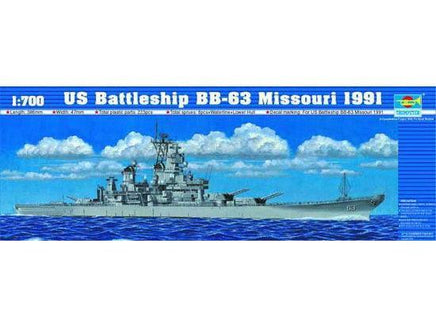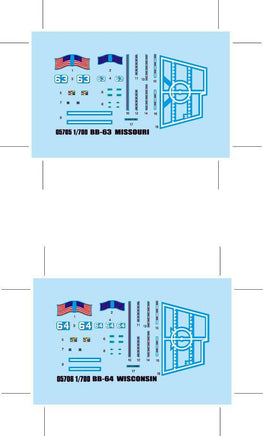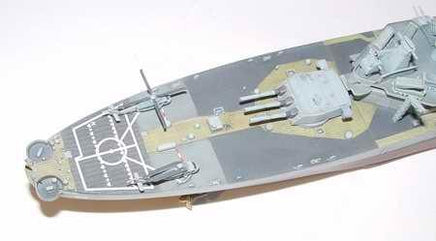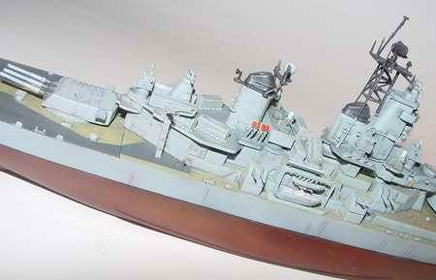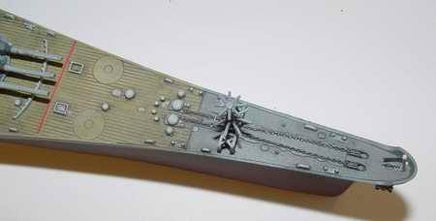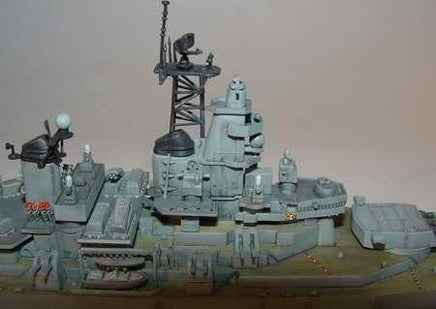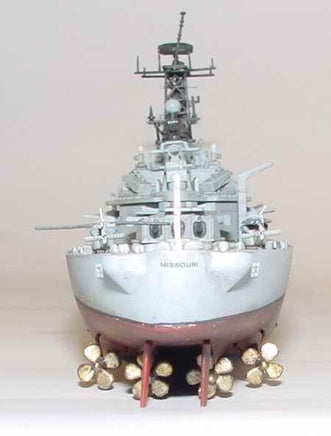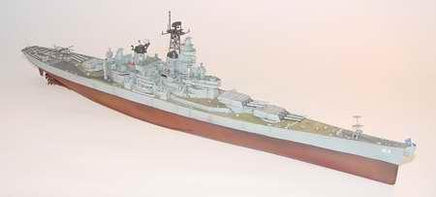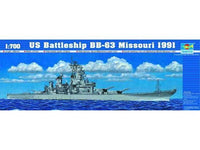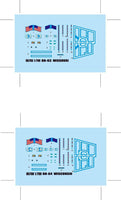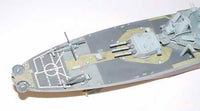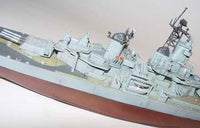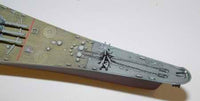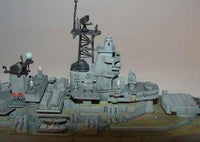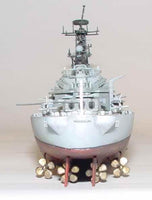The construction of BB-63 began on 6 January 1941 in the New York Navy Yard as the third ship of Iowa-class battleships. The Iowa-class was planned with a view to rival the super battleships (Yamato-class-to-be) planned by Japan, which withdrew from Washington and London treaty in 1936. Its design represented that the class was 45,000 tons (the very limit to the London Treaty), nine 16in/50cal guns in three batteries, and the speed of 33 knots. The speed was decided under precautions against the Japanese Kongo-class high-speed battleships, which boasted of 30 knots. To fulfill the conditions, its engine compartment for a high-power engine needed to be a large one. However, the width of warships of the US, which faced two oceans, had to be 33m at the widest in order to pass through the Panama Canal. Inevitably, its length at the waterline was very long 262m. although the US Navy at that time was capable of manufacturing 18-inch guns, it was impossible to mount them on a ship under 33m-wide. And the fact that the Yamato-class had 18-inch guns had been unknown to the US until the end of WWII. Entering service in June 1944, Missouri became the temporary headquarter of the 58th high-speed task force. When she participated in the battle of lwo Jima and Okinawa, she received Kamikaze attacks and was slightly damaged. After the surrender of Japan, she entered Tokyo Bay as the flagship of the 3rd fleet. It is well known that the instrument of surrender was signed on her deck. After the war the Iowa-class ships returned home and served as the training ships for new officers. When the Korean War occurred in 1950, the four ships which had been in mothballs except Missouri, were back to the battle. In 1951 she bombarded Wonsan supporting the landing operation. In Vietnam War three Iowa-class ships including Missouri remained in mothballs with only New Jersey in service. In 1980 Reagan administration ordered the revival of Iowa-class battleships under the project of defense buildup of US naval force. Missouri was modernized and re-entered service in July 1986 with Harpoon, Tomahawk, and cutting-edge electric devices. In January 1995, four years after participating in the Gulf War with Wisconsin, she and other three were finally deleted from the Navy list ending the life of more than fifty years.
- Scale: 1/700
- Item Type: Static Kit
- Model Brief L: 386 mm W: 47mm
- Total Parts: 223pcs
- Photo Etched Parts: 2pcs brass propeller
- Total Sprues: 8pcs + Waterline + Lower Hull
- Paint Schemes: for US Battleship BB-63 Missouri 1991

